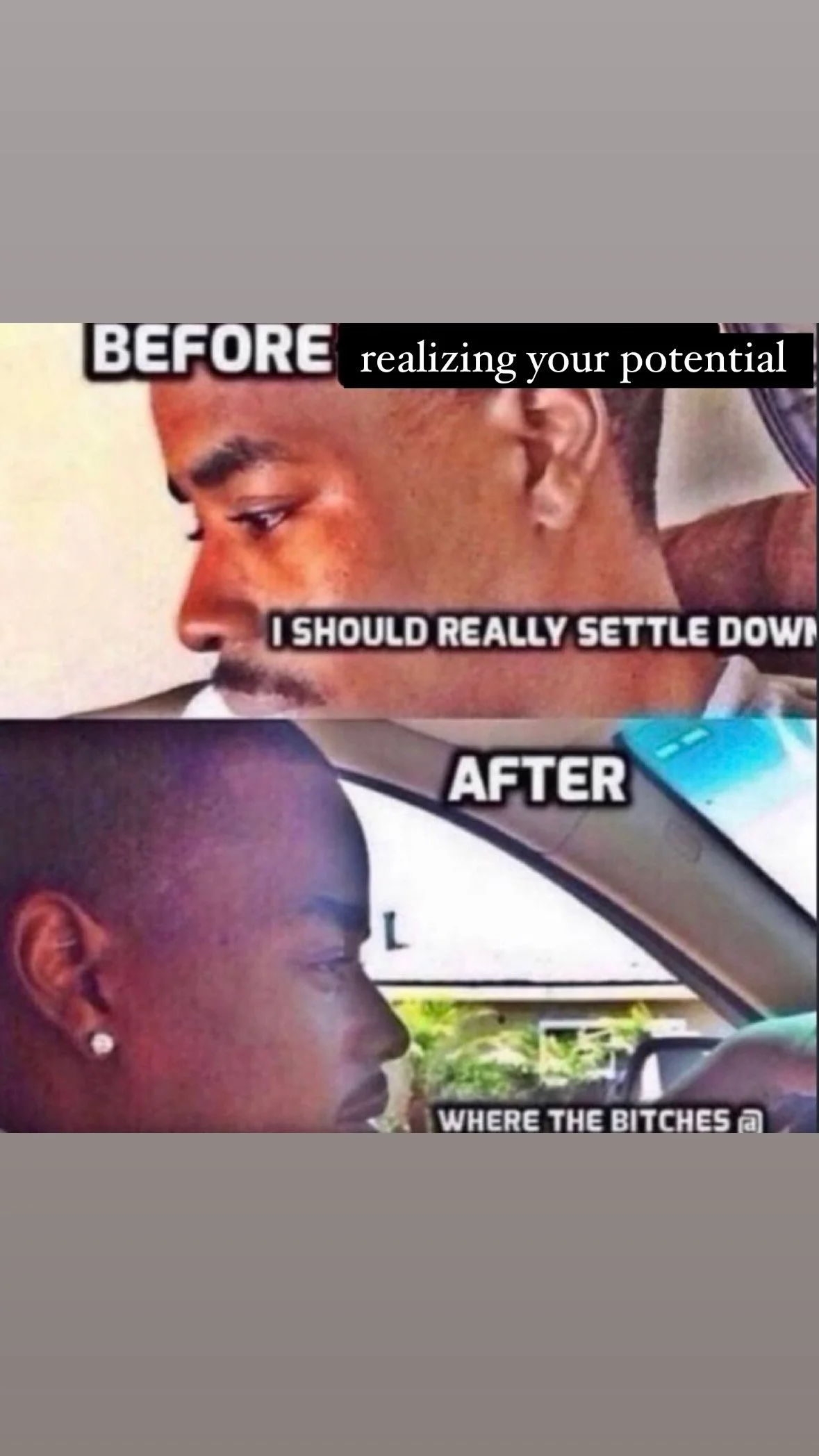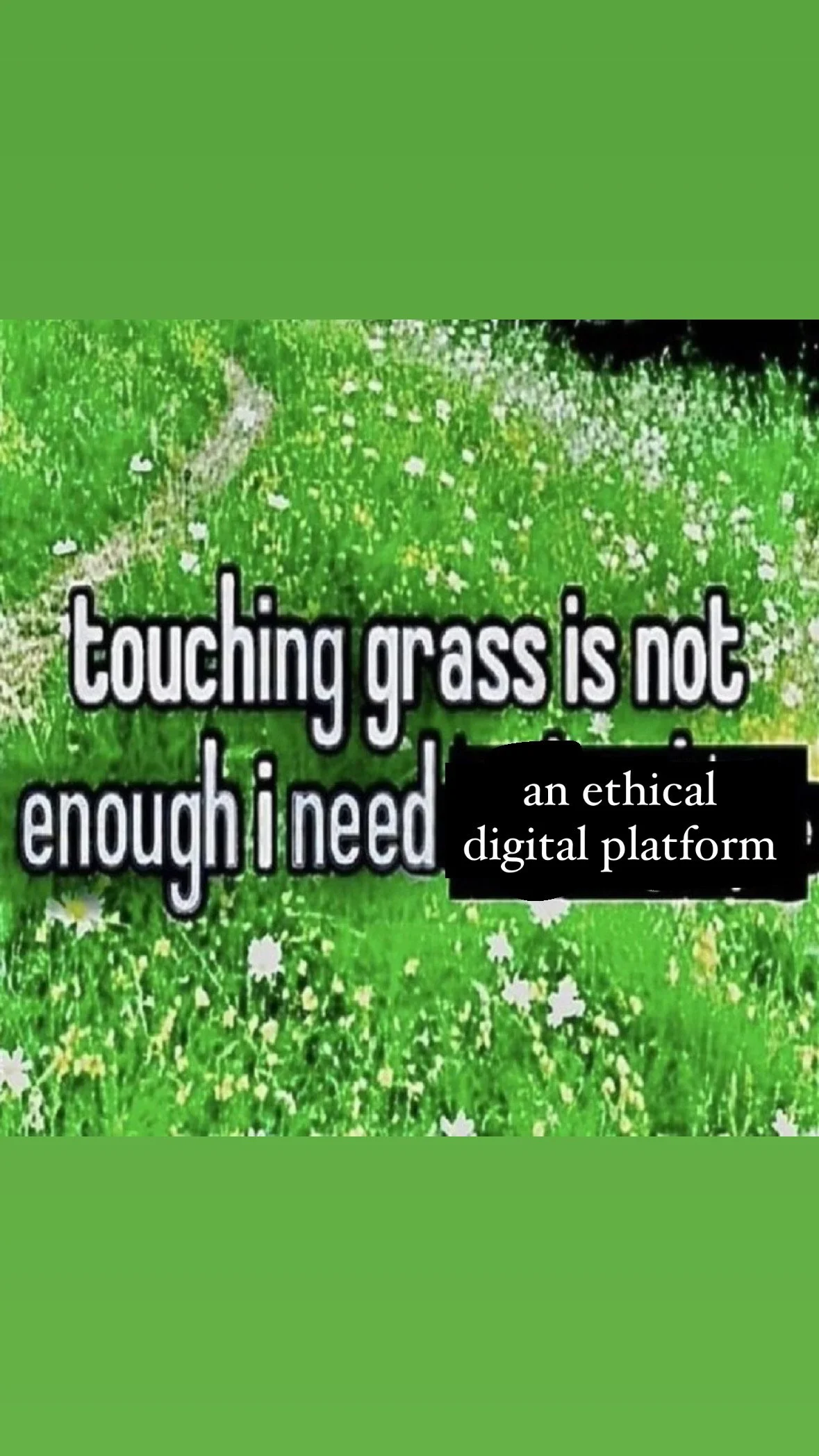“all media at one point was once considered new.”
Babette Thomas
Babette Thomas: All Media At One Point Was Once Considered New
By Veralyn Wen
On a Summer day in Switzerland doing curatorial research for the gallery I was interning at, I came across Rhizome, a platform that champions digital art and culture. Rhizome is a great resource for those interested in the intersection of art and technology; its digital library contains various articles, essays, and events being linked to the site. My assigned task was to research curators focused on art and technology, but upon discovering Babette Thomas I couldn't help but go down a mini rabbit hole. Captivated by their projects, I immediately sent an email in hopes that they'd wanna chat with me. In their time at the Center For The Study of Slavery and Justice in Providence, Rhode Island, they digitized two exhibitions : The Black Shackle: African Americans and the Coal Economy and Makers Unknown: Material Objects and the Enslaved. Thankfully, as I did my daily email check and DING—Babette said yes, so here’s what we talked about!
Babette Thomas (they/them) is a Yale PHD student in the departments of African-American and American Studies, radio producer, historian, and writer who passionately explores the intersection of Black History, sound, and new media. On a zoom call in two separate parts of the world, we held space to connect over me learning more about them. Our conversation was a fascinating journey, with each answer from Babette opening up new avenues of thought. It felt as if each response addressed not only my initial questions but also several others that I hadn't yet considered. So trust and believe that as I reviewed the interview afterward, I couldn't help but smile, cackle, and take hella notes. My hope to you as the reader, are able to capture the brilliance and depth that Babette brings to their practice.
Thomas’ journey into digital archival work is a true testament to the full-circle moments that often shepard people into their careers. Babette grew up in the digital age and started producing radio in highschool, “In the interest of access,” Babette said. From interning at major arts institutions like the Whitney, during their college career, Thomas has merged their passions into their everyday life and work. “I just kind of want everyone to be able to access them (the archives) and everyone to have this curiosity about the spaces around them.”.They said this access to art and Black historical narratives, specifically, inspired them form a path into digitally archiving from the beginning and it's the same ethos that keeps them going today. Their love for podcasting, radio, art, and Black history has led them to partnering with museums like SFMoma for an itinerant podcast series about the exploration of “imagining a future of Black art that exists outside of museums” called Raw Material: Visions of Black Futurity.Their work reflects an even broader cultural shift of questioning the relevance of institutional structures for the creation and circulation of art. As Babette put it, “The Whitney Museum is like $30 bucks, like it's not cheap… I think it's more important to make museums affordable, that's like the first step. Maybe like in the meantime, folks can still research these collections online without having to go inside the Whitney Museum…”. The intersection of technology, art, and capital is unavoidable when looking at the gatekeeping and barriers put in place for artists whether its costs or access. While in real life visits to museums and galleries will always have an appeal, these institutions must still adapt to the digital age if they want to maintain relevance in educational spaces. “They need to catch up or they're gonna become obsolete, no ones gonna care what's happening in museums,” Babette warns.
The debate over whether we need to replace traditional art institutions has been around longer than both Babette and I have been alive — so it's not exactly breaking news when it’s brought up. The relevance of future big name museums and galleries is something worth questioning; it’s necessary, especially when looking at the artwork by Black and marginalized peoples that have thrived outside of these spaces. One of Babette’s new research deep dives? Black girls and women on the radio in the mid to late 20th century— a great example of media that was once considered “new”. But wait, it gets even better: Babette dropped this gem (which was so funny to me): “all media at one point was once considered new”. As someone whose entire thesis will be about “new media”, I was gagged. Like a girl, “You exist in the context of all in which you live and what came before you.”
When discussing the issues at hand of why this work is important, Babette brings up the type of internet that they wish to occupy: one that is riddled with ethics, respect, and responsibility. One that acknowledges that if our attention is a commodity, the value we place in that attention must be met with intention and awareness. This makes me think of Jonathan Beller, and his work discussing the “new natural economy”([^1]), which is the attention economy. The attention economy is a shift in cultural management where our attention is treated as a commodity and is traded for information through the media we consume. With digital culture, it's not just the aesthetics that we have to consider the ethics of –it's the circulation of data, our attention, and what we do with this new order programming. Beller references it best, “The human has become the medium for information; put another way, the medium is human, despite the fact that human potential is foreclosed by its function.”([^2]) So to say, the kind of internet that Babette is hoping for is around the corner of us reconfiguring how we function within the condition of being connected through occupying the internet together. Above all, Babette’s stance on this subject is that in order to reach this era of digital culture, their own priority is placed in cultural and regional specificity. People have the ability to choose what matters to them: good, clean, dirty, bad, or mid content. They call this the “right to opacity”; the beauty in existing in a post-internet internet is that we can pick and choose what we deem to be forgivable and tolerable. “Right to opacity” is such a fascinating way to put it. You, a consumer of social media, don't have to like everything you see, in fact the chances that you do are slim to none. This aspect of the conversation began when discussing why they wanted to archive Black historical narratives, in Thomas’ words, “it is such a gift to be able to kind of step in and learn about someone's experience of blackness in the world and so I think that it's important that we come up with ways to do so ethically, respectfully, and responsibly”. The internet is just another iteration of how people see and express themselves.
Historically, Black people have found mediums to express and share our oral histories. I’d like for you to think about what forms of representation matter to you, where do you see and access them the most? How do you interact with representation that you don't ascribe to? Babette had a lot to say.
“I’m not really interested in just any form of Black representation” Babette explained., “I don’t think all representation is good. I think some representation is, you know, like can be inaccurate, can be problematic, can be all these things. What’s been hard with Black representation is that we haven’t had enough to the point where any representation on the Internet or in film that represents Black women we are clamoring for but if it's bad.”
So where do they see this going? “What I think is a little bit exciting about the Internet is that we can have this full range of representation where you know; we don’t have to accept everything like some of it can be bad and we can choose what we are interested in. How I’m interested in thinking about Blackness on the internet is in terms of specificity”. This specificity pertains to a more cultural and regional lane of expression and historical narratives. Babette explained a bit into what they meant: they follow Black French Tiktokers and have the ability to learn more about their experiences over there. In an essay by the UN, they discussed the various ways in which we could benefit from a more intentional approach to occupying the internet, “A more regenerative economic model where all stake- holders benefit, and inequalities are minimized to the benefit of society and nature” and that would happen through “Relying on technology design and a business model that is people-centered and intention-based, not at- tention-based”.([^3])
What we pay attention to, now more than ever, is paramount to how we can critically engage with the world around us. Art and information being funneled through more open source channels is incredibly important and as a techno-optimist, this is part of what I’m hoping you see through this interview. There's hope in technology and there has always been. Thanks to scholars like Babette Thomas doing the work of digitally immortalizing Black history, they've provided and continue to provide an amazing blueprint of how to ensure the internet that we occupy is preserved and respected. Questioning the power and relevance of art institutions in the presence of an evolving digital culture and society also serves as a great layer of curiosity for future new media explorers and cultural visionaries. Where do you see the future of museums and technology going forward?
1
Beller, J. (n.d.). Paying attention: Jonathan Beller. CABINET /. https://www.cabinetmagazine.org/issues/24/beller.php
2
Beller, J. (n.d.). Paying attention: Jonathan Beller. CABINET /. https://www.cabinetmagazine.org/issues/24/beller.php
3
Attention economy. (n.d.). https://www.un.org/sites/un2.un.org/files/attention_economy_feb.pdf



